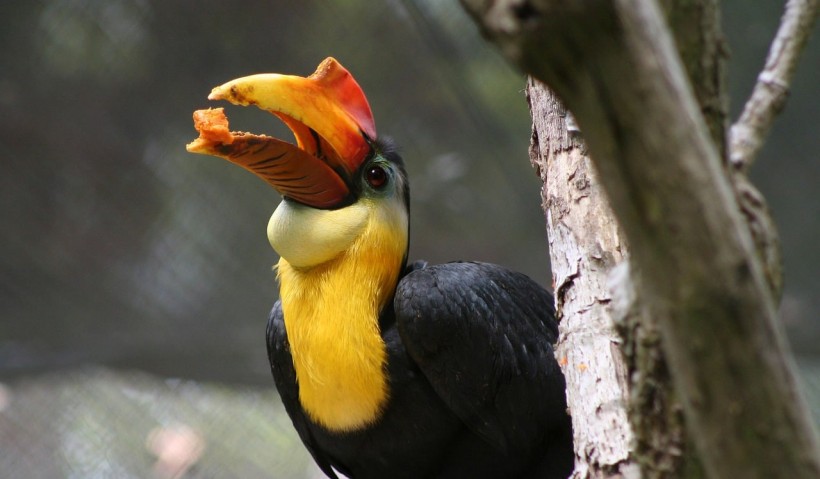Birds have been extensively studied, but biologists have overlooked one of their favorite foods: feces. Surprisingly, many birds enjoy consuming this sticky substance, which could significantly affect their health. This preference for poop might play a crucial role in birds' resilience over millions of years.

(Photo : Pixabay/HildePildeWilde)
Impact of Coprophagy on Bird Gut Microbiomes
A recent research spearheaded by the University of South Australia sheds light on birds' predilection for feces as a source of nutrition. Led by Dr. Barbara Drigo, a microbial ecologist at UniSA, the study, titled "Impacts of coprophagic foraging behavior on the avian gut microbiome" published in Biological Reviews, examines how the ingestion of fecal matter, known as coprophagy, shapes the digestive systems of wild birds.
This dietary behavior enables birds to acquire vital nutrients and adapt to changing environments and seasonal variations, particularly during developmental stages and long migratory journeys.
The research underscores the significance of feces consumption in avian health, elucidating its role in modulating the bacterial composition of birds' digestive tracts. While there are indications that fecal ingestion may confer protective benefits against infections in birds, further investigation is warranted to substantiate this hypothesis.
Despite its nutritional advantages, feces consumption poses inherent risks. Birds may serve as carriers of diseases, potentially transmitting pathogens to other avian species and even humans through their fecal matter. Moreover, ingesting feces exposes birds to antimicrobial substances, including pesticides and cleaning agents, which can exacerbate antimicrobial resistance.
Dr. Drigo emphasizes the necessity of preserving a diverse gut microbiota in birds for their overall well-being. Human intervention, such as feeding birds bread in urban environments, can disrupt their gut microbiomes due to exposure to chemicals and contaminants from waste and refuse.
Consequently, comprehensive research on the impact of coprophagy on avian health across various life stages and habitats is imperative for safeguarding bird populations.
Insights into Nest Hygiene and Nutritional Adaptation
A 2023 study reports that the common ostrich feeds its offspring its own excrement, a practice observed to accelerate the development of hatchlings' gut microbiomes. Moreover, various adult bird species, including bulbuls, robins, drongos, mockingbirds, Florida scrub jays, and American crows, have been seen consuming the feces of their young.
During feeding sessions, adult birds receive an unexpected snack in the form of a 'fecal sac' produced by nestlings. This sac, resembling a small dumpling, serves as a makeshift diaper for chicks unable to leave the nest, which the parent promptly ingests.
While this behavior remains largely unstudied, researchers speculate it may aid in nest hygiene or serve as a means for adult birds to replenish nutrients and microbes expended during parenting duties.
In a 2020 study on giant babax, researchers found that hatchlings' fecal sacs were abundant in Firmicutes bacteria, crucial for the gut microbiome in many bird species.
Apart from promoting gut health, fecal consumption may assist birds in adapting to nutrient scarcity. For instance, white-winged crossbills are believed to consume river otter feces for their calcium-rich undigested bones, while giant petrels are thought to feed on seal feces as a high-energy food source during incubation periods.
RELATED ARTICLE: Why Do These Birds Soak Their Food Before Eating? Surprising Reason Behind Goffin's Cockatoos' Food-Soaking Behavior
Check out more news and information on Birds in Science Times.


![Earth's Quasi-Moon Kamo‘oalewa Could Originate From Lunar Surface Not Asteroid Belt [Study]](https://1721181113.rsc.cdn77.org/data/thumbs/full/53275/89/56/50/40/earths-quasi-moon-kamo-oalewa-could-originate-from-lunar-surface-not-asteroid-belt-study.png)











